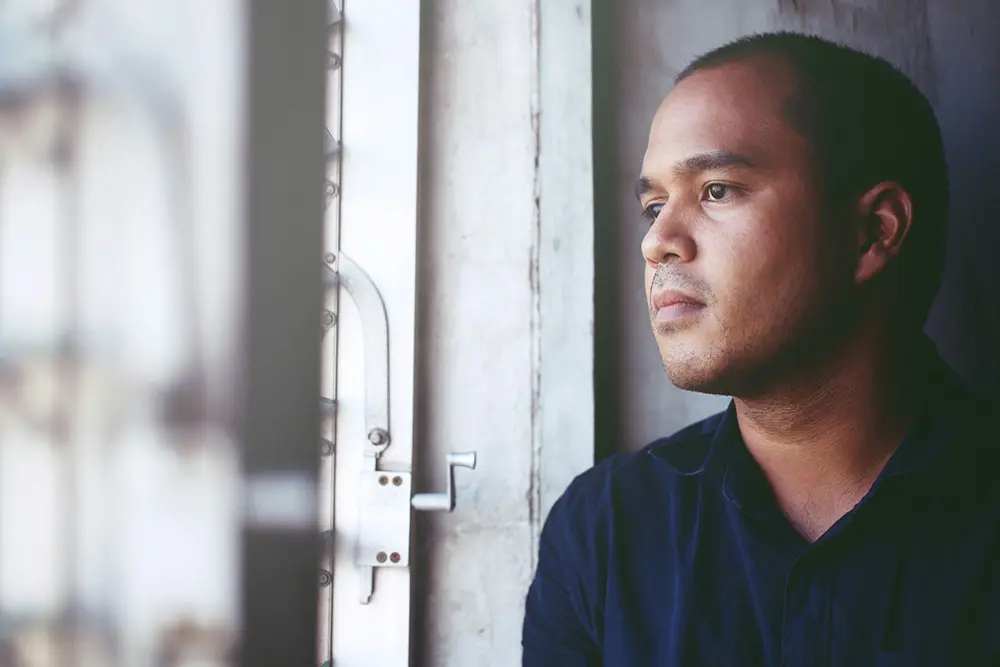Psychosis and schizophrenia are often misunderstood, yet distinguishing between them is crucial for timely care and reduced stigma. Psychosis refers to a break from reality, marked by hallucinations, delusions, or disorganized thinking. It can be brief and triggered by stress, trauma, or substance use, often signaling a need for evaluation but not necessarily a diagnosis of schizophrenia.
Schizophrenia, however, is a long-term mental health disorder where psychosis is just one of several chronic symptoms. Individuals may also experience cognitive challenges, emotional blunting, and social withdrawal.
At Harmony Hills, we help individuals and families navigate these differences with compassion and expertise. Our team of professionals offers personalized assessments, evidence-based therapies, and educational support to guide early intervention and long-term recovery.
Learn more about our approach to mental health treatment at Harmony Hills, where clarity and healing begin with understanding.
Why This Distinction Matters
Understanding the distinction between psychosis and schizophrenia is essential for accurate diagnosis, treatment, and support. Mislabeling psychosis as schizophrenia may lead to unnecessary stigma and long-term medication, while overlooking schizophrenia risks inadequate care for a chronic condition. Clear differentiation ensures individuals receive appropriate, tailored interventions.
Key Reasons to Know the Difference:
- Improves Diagnosis Accuracy: Distinguishes between brief psychotic symptoms and chronic mental illness, reducing the risk of misdiagnosis.
- Guides Treatment Plans: Clarifies whether a person needs short-term stabilization or long-term psychiatric care, optimizing outcomes.
- Reduces Stigma: Prevents the emotional burden of being incorrectly labeled with a serious condition like schizophrenia.
- Empowers Families: Enhances communication and advocacy by helping loved ones understand the nature and duration of symptoms.
- Supports Better Outcomes: Promotes personalized care strategies and early intervention, which lead to more effective recovery and long-term wellness.
FAQs: Psychosis vs. Schizophrenia
No. Psychosis is a symptom marked by a break from reality, often involving hallucinations, delusions, or disorganized thinking. It can be part of many mental health conditions. Schizophrenia, by contrast, is a chronic psychiatric disorder in which psychosis is just one of several ongoing symptoms.
Yes. Psychosis can result from mood disorders like bipolar disorder, substance use, trauma, or medical issues. Experiencing psychosis doesn’t automatically mean a person has schizophrenia.
Psychosis treatment depends on its cause and may involve short-term medication and therapy. Schizophrenia, however, requires lifelong management with antipsychotic medication, psychotherapy, and support services.
It helps professionals provide appropriate care, prevents misdiagnosis, and reduces the stigma associated with chronic mental illness, leading to better outcomes.
What Is Psychosis?

Psychosis is a mental health condition in which a person loses contact with reality, leading to distorted thinking, perceptions, and behaviors. It often involves hallucinations—seeing or hearing things that aren’t there—and delusions, which are firmly held false beliefs. Disorganized speech and behavior are also common.
Psychosis can occur as part of various psychiatric disorders, such as schizophrenia, bipolar disorder, or severe depression, but it may also be triggered by substance use, trauma, or medical conditions. Early intervention is critical, as prompt treatment with therapy and medication can help manage symptoms, reduce distress, and improve long-term outcomes for affected individuals.
What Is Schizophrenia?
Schizophrenia is a chronic, severe mental health disorder that affects how a person thinks, feels, and behaves. It often involves episodes of psychosis, including hallucinations, delusions, and disorganized speech. Individuals with schizophrenia may also experience flat affect, impaired executive functioning, and social withdrawal. These symptoms typically interfere with daily functioning and relationships.
The condition usually emerges in late adolescence or early adulthood and requires long-term management. While the exact cause is unknown, genetic, neurological, and environmental factors are believed to play a role. Schizophrenia treatment often includes antipsychotic medication, psychotherapy, and community support to help individuals maintain stability and improve quality of life.
Key Differences Between Psychosis and Schizophrenia
Psychosis and schizophrenia are related but distinct mental health concepts that often cause confusion. Psychosis is a symptom, not a diagnosis—it refers to a break from reality, typically involving hallucinations, delusions, or disorganized thinking. It can occur due to various conditions such as bipolar disorder, severe depression, trauma, or substance use.
Schizophrenia, however, is a chronic psychiatric disorder in which psychosis is one core component. In addition to delusions and hallucinations, individuals with schizophrenia often face cognitive impairments, social withdrawal, and flattened emotional expression. While psychosis may be temporary and episodic, schizophrenia requires ongoing treatment and long-term management.
Understanding these differences between psychosis vs. schizophrenia is essential for accurate diagnosis, appropriate care, and minimizing stigma associated with serious mental illness.
Key Differences Between Psychosis and Schizophrenia
| Feature | Psychosis | Schizophrenia |
| Definition | Symptoms of various conditions | Chronic mental health disorder |
| Duration | Temporary or episodic | Long-term and often lifelong |
| Common Causes | Trauma, substances, and mood disorders | Genetic, neurobiological, and environmental |
| Symptoms | Hallucinations, delusions | Psychosis, cognitive, and social deficits |
| Treatment | Depends on cause | Requires ongoing management |
Psychosis Can Be a Warning Sign
Psychosis can be an early indicator of a developing mental health disorder. When someone experiences hallucinations, delusions, or disorganized thinking, it may suggest the onset of conditions like schizophrenia, bipolar disorder, or substance-induced psychosis. Recognizing these signs early is essential for timely diagnosis and treatment.
Why Psychosis Should Not Be Ignored:
- May signal serious psychiatric disorders
- Can disrupt relationships, work, and daily life
- Early intervention improves long-term outcomes
- Often misunderstood, leading to stigma or delayed care
- Can stem from trauma, drug use, or medical conditions
Prompt care—including medication, therapy, and support—can help stabilize symptoms and prevent escalation.
How Are Psychosis and Schizophrenia Treated?
Treatment for psychosis and schizophrenia involves a blend of medication, therapy, and supportive care tailored to individual needs. For psychosis, the approach depends on the underlying cause—whether it’s a mood disorder, substance use, or medical condition. Early intervention often includes antipsychotic medications and short-term psychotherapy.
Schizophrenia requires long-term management with antipsychotic medication as the foundation. Cognitive Behavioral Therapy (CBT), psychosocial interventions, and community-based support help individuals cope with symptoms and improve functioning. Continuous care, including family education and case management, plays a critical role in relapse prevention and recovery.
Treatment Overview
| Treatment Type | Psychosis | Schizophrenia |
| Medication | Short-term antipsychotics | Long-term antipsychotics |
| Therapy | Brief psychotherapy, CBT | CBT, DBT, family therapy |
| Duration | Temporary, cause-specific | Lifelong management |
| Support Systems | Crisis intervention, outpatient care | Community programs, case management |
| Goal | Stabilize and resolve underlying issue | Reduce relapse, improve function |
Can Substance Use Cause Psychosis?
Yes, substance use can cause psychosis, especially when certain drugs disrupt brain chemistry. Psychotic symptoms may include hallucinations, delusions, and disorganized thinking, either during intoxication, withdrawal, or as a long-term effect. Substances like methamphetamine, cocaine, LSD, and high-potency cannabis are known to trigger psychosis in some individuals. The risk increases with chronic use, underlying mental health conditions, or genetic vulnerability.
Key Points on Substance-Induced Psychosis:
- Can occur during use, withdrawal, or after prolonged exposure
- Common with stimulants, hallucinogens, and cannabis
- May be temporary or lead to longer-term psychiatric issues
- Requires medical assessment to rule out underlying conditions
- Treatment may include detox, antipsychotics, and therapy
When to Seek Professional Help
Recognizing mental health challenges early can make a powerful difference in treatment success and overall well-being. When symptoms begin disrupting your ability to work, connect with others, or feel safe, it’s a clear signal to seek professional help. Taking that step isn’t weakness—it’s a courageous choice toward healing and stability.
Signs You Should Reach Out:
- Persistent emotional distress, anxiety, or sadness
- Disrupted sleep, appetite, or energy levels
- Trouble managing daily responsibilities or routines
- Thoughts of hopelessness, self-harm, or suicidal ideation
- Hallucinations, delusions, or confusion about reality
- Relying on substances to cope with stress or emotion
Timely care through counseling, medical support, or therapy can stabilize symptoms and promote lasting recovery. You’re not alone—support is available.
Take the First Step Toward Clarity and Healing

Taking the first step toward mental clarity and emotional healing may feel overwhelming, but it’s also a powerful act of courage. Reaching out for support opens the door to greater self-understanding, emotional stability, and personal growth. Whether you’re struggling with anxiety, trauma, substance use, or emotional uncertainty, professional care offers the tools and guidance to help you heal, rebuild, and thrive. You deserve compassion, and your journey toward wellness can begin with one brave choice.
Why Your First Step Matters:
- Signals readiness for change and growth
- Connects you with experienced professionals
- Begins a path toward symptom relief and recovery
- Helps you understand underlying emotional patterns
- Builds coping strategies for long-term resilience
Healing starts with one decision, and support is ready when you are.
How Harmony Hills Supports Mental Health Recovery
Harmony Hills takes a comprehensive, compassionate approach to mental health recovery, offering personalized care in a serene residential setting. Our program integrates evidence-based therapies like Cognitive Behavioral Therapy (CBT), Dialectical Behavior Therapy (DBT), and trauma-informed care to address conditions such as depression, anxiety, bipolar disorder, and schizophrenia. We also offer dual diagnosis support for individuals facing co-occurring substance use challenges.
What sets Harmony Hills apart is our experienced, multidisciplinary team. From licensed therapists and medical professionals to case managers and support staff, each member is dedicated to fostering recovery, dignity, and personal growth. We build treatment plans around your unique goals, combining structure with empathy to empower lasting transformation.
Clients thrive through individual counseling, group therapy, wellness activities, and family involvement—all within a peaceful environment designed to restore balance and connection.
Ready to begin your recovery journey? Contact us today. Your path to healing starts here!








